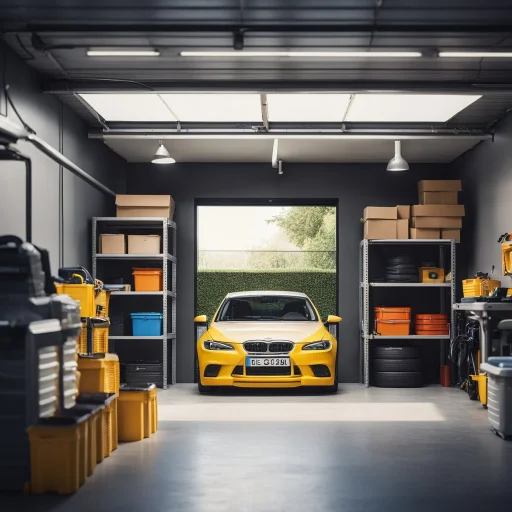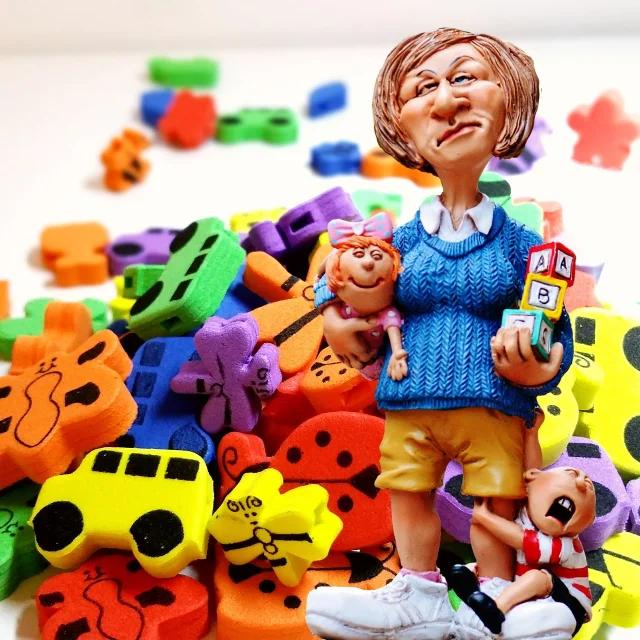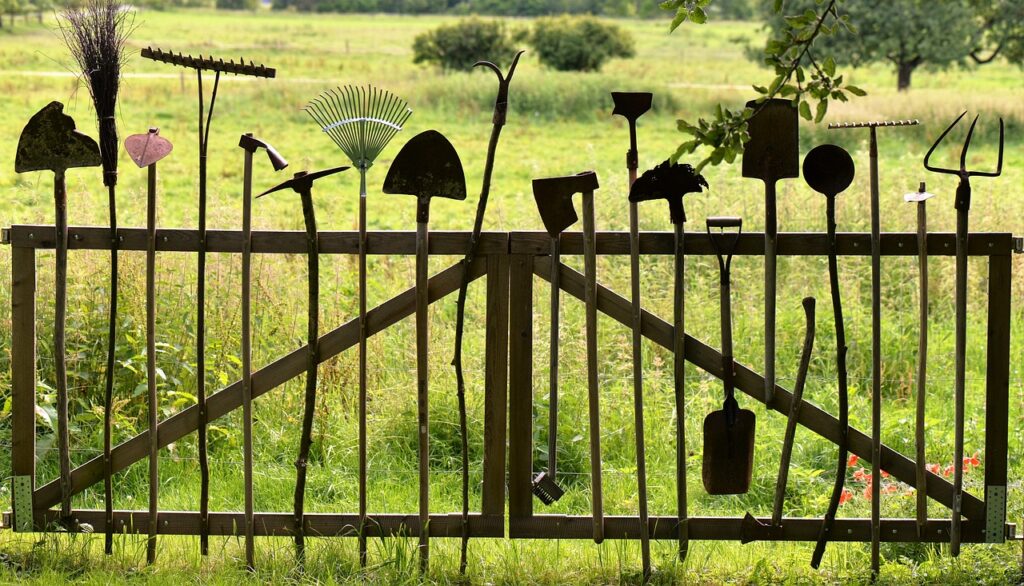Are your bookshelves overflowing, leaving you feeling overwhelmed? Not sure how to declutter books? One important fact to consider is that decluttering books can refresh your space and mind. This article will guide you through the process of sorting, purging, and organizing your book collection to make it manageable again.
Keep reading for simple steps to freedom from clutter!
Contents
- 1 Key Takeaways: How to Declutter Books
- 2 Understanding the Emotional Connection to Books
- 3 Effective Strategies to Declutter Books
- 4 Questions to Ask When Decluttering Books
- 5 How to Declutter Different Types of Books
- 6 Finding New Homes for Your Decluttered Books
- 7 Maintaining a Clutter-Free Book Collection
- 8 Conclusion
- 9 FAQs
Key Takeaways: How to Declutter Books
- Start decluttering by gathering all your books in one place and sorting them. Check for duplicates and decide which ones truly matter to you.
- Use the KonMari Method by touching each book to see if it sparks joy before deciding to keep or let go. Make sure every book earns its spot on your shelf.
- Donate, sell, or trade books you no longer need. This gives them a new life with someone else and helps keep your collection clutter-free.
- Keep your book collection manageable by practicing the one-in, one-out rule. For every new book you add, remove an old one.
- Embrace digital books and use a library card to avoid accumulating more physical copies. This helps maintain a tidy space without giving up reading new titles.
Understanding the Emotional Connection to Books
Books are more than just pages filled with words; they hold memories and emotions. People often feel a deep bond with their books because they reflect personal interests, dreams, and moments in life.
This connection can make deciding which books to keep or let go a challenging task. The stories we read can shape our thoughts and beliefs, acting as mirrors to our souls. As such, each book on your shelf may represent a different aspect of who you are or aspire to be.
The process of decluttering becomes not just about sorting through books but also about examining one’s life and priorities. It’s essential to be mindful and intentional during this process, recognizing the sentimental value books carry.
By understanding why you cling to certain books, you unlock the door to streamlining your collection in a way that still respects your emotional ties.
Books carry the essence of who we are within their pages.
Next up: Effective strategies for decluttering those cherished collections.
Effective Strategies to Declutter Books
Finding the best ways to declutter books can make your space feel bigger and more organized. Start by setting aside time and getting ready for a fresh start with your book collection.
Gather all your books in one place
Start by collecting every book you own and bring them to one spot. This means pulling books off of shelves, desks, nightstands, and even digging them out from boxes where they’ve been stored away.
It’s a crucial first step because seeing all your books together gives you a clear picture of what you’re working with. Touch each book as recommended by the KonMari Method to really feel the volume of your collection.
Next, sort through these books carefully. With all your titles in one place, it becomes easier to organize them into categories and see how many duplicates have slipped into your collection over time.
This process also highlights which books hold sentimental value or spark joy in you. Removing excess books starts with this honest evaluation—deciding which ones truly matter ensures that every book on your shelf earns its place there.
Factor in storage space
After gathering all your books in one place, it’s time to think about storage space. This step is crucial for organizing books and keeping your area tidy. Look at your bookshelves and decide how much room you actually have.
This will help you figure out how many books you can comfortably keep without making your space feel cluttered.
Next, consider using the Boundary Method mentioned earlier. Set a limit on the number of books by the amount of shelf space available. If a shelf is full, stop adding more books to it.
Choose which books fit best in your life now, and stick to that decision as you sort through each title. By doing this, managing book clutter becomes simpler and helps streamline bookshelves into spaces that reflect your current interests and lifestyle.
Sort books into categories
Once you have considered your storage space, the next step is to sort books into categories. This helps in organizing books and streamlining bookshelves. Start by dividing your books into broad groups such as fiction, non-fiction, children’s books, and cookbooks.
This separation makes it easier to decide where each book should go.
Next, break down these broad groups further if needed. For example, organize novels by genre or authors and non-fiction by subjects like history or self-help. Sorting through books this way not only clears out clutter but also reacquaints you with what you own.
It simplifies finding and choosing what to read next while managing book clutter effectively.
Weed out duplicates
Go through your books and pull out any copies you have more than once. This seems straightforward, but it’s a step many skip. Finding duplicates can free up a surprising amount of space on your shelves.
If you notice two of the same book, decide which one to keep based on its condition or sentimental value.
Next, consider selling, donating, or gifting the extra copies. This not only helps in streamlining your bookshelves but also brings joy to others who might be searching for that exact book.
By removing these extras from your collection, you create room for new stories without cluttering your space.
Create a set of rules – and stick to them
Make a clear set of rules for sorting through books. Decide what to keep based on condition, if it’s a duplicate, and the likelihood of reading it again. This helps in managing book clutter effectively.
Stick to these rules firmly to make decisions easier.
Always ask if each book sparks joy or serves a purpose before deciding its fate. This approach simplifies the decluttering process and ensures your collection reflects current interests and lifestyle.
Following these guidelines strictly can lead to an organized, comfortable space filled with books that matter most to you.
Questions to Ask When Decluttering Books
Asking the right questions can make decluttering books easier. Think about what you really need and use to decide which books stay or go.
Is this a duplicate?
Check for duplicates as you sort through your books. You might find multiple copies of the same title. Keep just one and let go of the others. This step helps streamline your book collection and frees up space.
Making this decision can simplify your decluttering process.
Next, consider if the material in the book is current and relevant to move forward efficiently in decluttering.
Is the material in the book current and relevant?
Books can quickly become outdated, especially in fast-moving fields like technology or science. If the material is not current, you might be holding onto misinformation or irrelevant data.
This makes it crucial to ask if the book’s content is still useful today. For instance, a computer programming guide from ten years ago may not help with modern software development techniques.
On the other hand, timeless classics or historical works have lasting value and are always relevant.
Keeping books that reflect your current interests and lifestyle helps maintain a clutter-free space.
Deciding what stays involves thinking about whether you will use the information again. It also means considering if newer editions or updates are available that would make an older version obsolete.
Next up: Have I read this before, and will I read it again?
Have I read this before and will I read it again?
Ask yourself if you have read the book before and if it’s something you’ll read again. This question helps streamline your book collection. If a book was great but you won’t revisit it, consider passing it on.
Your space is precious, so keep books that matter for future reading.
Think about the joy a book brings. If holding it doesn’t spark happiness or curiosity for another read, it may be time to declutter. Choose to hold onto those that continue to inspire or entertain you every time you see them on your shelf.
Why do I want to keep this book?
After considering if a book will be read again, the next step is to figure out why keeping a book feels important. This question helps sort through emotions and practical reasons tied to each volume.
Books often hold special memories or represent certain aspirations. They can reflect personal interests or carry sentimental value from past experiences. Maybe this book inspired you at a crucial time in your life, or it could be a favorite story that always brings joy.
Deciding to keep a book might come down to its uniqueness in your collection and whether it adds value to your shelves. Think about if this book serves as a tool for learning or creativity that you’ll turn back to.
Some books are irreplaceable guides in hobbies or professions, making them invaluable resources worth holding onto. This process aligns with being intentional about which books truly enrich your space and life, helping create an organized environment filled with items that spark joy and encourage growth.
Could I get this book at the library to read again?
Thinking about why you want to keep a book leads naturally to the next question. If you’re sorting through books, consider if the title is available at your local library. This can be a game-changer in deciding whether to hold onto a book or let it go.
Libraries are an incredible resource for streamlining your book collection without losing access to read your favorites again.
Check the library’s catalog online or ask a librarian. Many libraries also offer e-books and audiobooks, so even if they don’t have a physical copy, you might still be able to enjoy the book digitally.
Making this effort helps keep your shelves clutter-free while ensuring you can revisit any story that truly matters to you.
How to Declutter Different Types of Books
Each type of book in your collection needs a special approach to decluttering. Learn how to handle fiction, non-fiction, children’s books, and cookbooks with ease.
Fictional book clutter
Fictional books can quickly pile up on shelves and floors, creating clutter. Start by gathering all your fiction in one place to see what you have. This will help you sort through them more easily.
Look for duplicates or books you’ve already read but don’t plan to revisit. Ask yourself if each book sparks joy or if it’s just taking up space. Books that no longer fit your life can find new homes.
Deciding which novels to keep might be tough. Use the KonMari Method by picking up each book and feeling if it brings joy. If yes, find a good spot for it; if not, consider passing it on to someone else who might enjoy it.
Think about getting digital versions of favorite stories to save physical space. Sharing books with friends or donating them gives others the chance to enjoy the stories too.
Non-fiction book clutter
Shifting from the imaginative worlds of fiction, non-fiction books offer a different challenge in decluttering. These volumes range from self-help to history, each holding a wealth of knowledge and personal growth.
Yet, managing this assortment requires a distinct approach. Begin by assessing the relevance of each book to your current interests and needs. Non-fiction often becomes outdated as new discoveries surface and perspectives shift.
Focus on the books you want to keep, rather than those you want to declutter.
Consider using the KonMari Method for these practical reads—hold each book and see if it still sparks joy or fulfills a purpose in your life today. Books that no longer serve your goals or have been replaced by more updated versions need new homes.
Streamline your collection by keeping only those that align with your present lifestyle and learning objectives. This process not only clears physical space but also refocuses your collection on areas that matter most to you now.
Children’s books
Moving from non-fiction book clutter, the challenge of managing children’s books comes next. Kids outgrow their books just like they do clothes. Start by gathering all children’s books together to see what you have.
It makes it easier to sort through them and make decisions.
Decide which books your kids read often or are strongly attached to. Ask if these stories still interest them or if they’re ready for new adventures in reading. For the ones they’ve outgrown but are still in good condition, consider passing them on to friends with younger kids, selling at a garage sale, or donating to schools and libraries.
This way, those beloved stories get new life with other children.
Cookbooks
Cookbooks often hold a special spot in our hearts and kitchens. They can be gifts from loved ones, reminders of places we’ve visited, or aspirations for meals we’d like to cook. To declutter your collection, first gather all your cookbooks in one place.
This way, you see how many you have and can make decisions more easily. Look at each book and ask if it brings joy or if it’s just collecting dust. Books that no longer match your cooking style or diet can find new homes.
Next, consider the storage space in your kitchen. Keep only those cookbooks you use often or have sentimental value within easy reach. You might sell or donate others to streamline your shelves and free up space.
Think about going digital with recipes that are important but come from books you don’t need anymore. Organize what remains so every cookbook has its own spot, making them easier to find when inspiration strikes or meal planning begins anew.
Finding New Homes for Your Decluttered Books
Once your books are decluttered, think about sharing the joy. Giving books to friends or donating them can make someone else’s day brighter.
Gift books to friends and family
Gifting books to friends and family is a thoughtful way to find new homes for your decluttered items. Choose books that match their interests or ones you think they would enjoy. It’s a meaningful way to share something personal with them.
Hand-selecting books for someone can show how well you know them and offer a piece of literature that might become their favorite.
Selling or trading your books is another option to consider. Look into local bookstores that buy used books or sites online where you can sell or swap with others. This method not only clears out your space but also possibly earns back some money or new reading material in exchange.
Think about which books are in good condition and likely to be sought after, then list them for sale or trade.
Sell or trade books
After giving books to friends and family, another option is selling or trading them. Many bookstores buy used books or offer trade deals. You can also sell books online on websites like eBay or Amazon.
Selling gives your books a second life and puts some extra cash in your pocket.
Trading books is fun too. Look for local book swaps or online communities where you can exchange books with others. This way, you get new reads without spending money, and someone else enjoys the books you’ve moved on from.
Donate books to the library or other organizations
Donating books to libraries and other organizations helps clear space on your bookshelves and benefits the community. Libraries often accept donations to expand their collections or sell in fundraising sales.
Other organizations give books to those who need them, such as schools and shelters. This way, your decluttered books find new readers and serve a good purpose.
Books are uniquely portable magic. – Stephen King
Consider also specialized programs that send books overseas to countries with limited access to reading material. Every book you donate can spark joy for someone else, making it a meaningful step in tidying up your collection while supporting literacy and education worldwide.
Maintaining a Clutter-Free Book Collection
Keeping your book collection clutter-free is simple with the right habits. Embrace digital books and a library card to avoid piling up more physical copies.
Go digital
Switching to digital books is a smart way to reduce clutter. E-books save space and you can access thousands of titles without needing physical storage. Devices like tablets or e-readers let you carry an entire library in your pocket.
This choice supports a simplifying book collection goal by keeping only the digital copies of what you truly enjoy.
Getting e-books often costs less than buying hardcovers or paperbacks. Many libraries offer free e-book lending, making it easy to read the latest titles without spending money. This method aligns with decluttering strategies by prioritizing accessibility over physical possession, helping maintain a tidy, streamlined bookshelf.
Get a library card
Getting a library card is a smart move for anyone looking to declutter their book collection. Most libraries offer a wide range of books, magazines, and digital resources for free.
You just need to sign up and get your card. This way, you can read all you want without adding more books to your shelves. It helps keep your home tidy while still letting you enjoy endless reading.
Use your library card to explore new genres or authors without the risk of buying a book you might not like. Plus, many libraries have online platforms where you can borrow ebooks and audiobooks right from home.
Moving on, practice the one-in, one-out rule is next in maintaining that clutter-free space.
Practice the one-in, one-out rule
To maintain a clutter-free book collection, apply the one-in, one-out rule. This means for every new book you bring home, remove an old one from your shelves. This simple strategy helps keep your collection manageable and ensures that you only keep books you truly value.
It also encourages you to think carefully about which books are worth bringing into your space.
Using this method supports a sustainable approach to managing your book clutter. It prevents the accumulation of unnecessary volumes and makes sure there’s always room for something new without overcrowding.
Next, explore different ways to find new homes for decluttered books.
Conclusion
Decluttering books helps create a space that truly reflects your current interests and lifestyle. A well-organized book collection brings joy and reduces stress. Remember, every book you choose to keep or give away is a step towards simplifying your life.
Keep what you love, donate what others might enjoy, and cherish the journey to a clutter-free home. Your streamlined shelves will thank you!
FAQs
1. Where do I start when decluttering books?
Start by gathering all your books in one place to see what you have.
2. How do I decide which books to keep?
Keep the books that you love or will definitely read again.
3. What should I do with the books I no longer want?
Donate them, sell them, or give them away to friends and family.
4. Can decluttering my books really make a difference in my home?
Yes, it can create more space and reduce clutter in your living area.
5. Is there an easy way to keep track of the books I decide to keep?
Organize them on shelves or in boxes by category so you know what you have.




